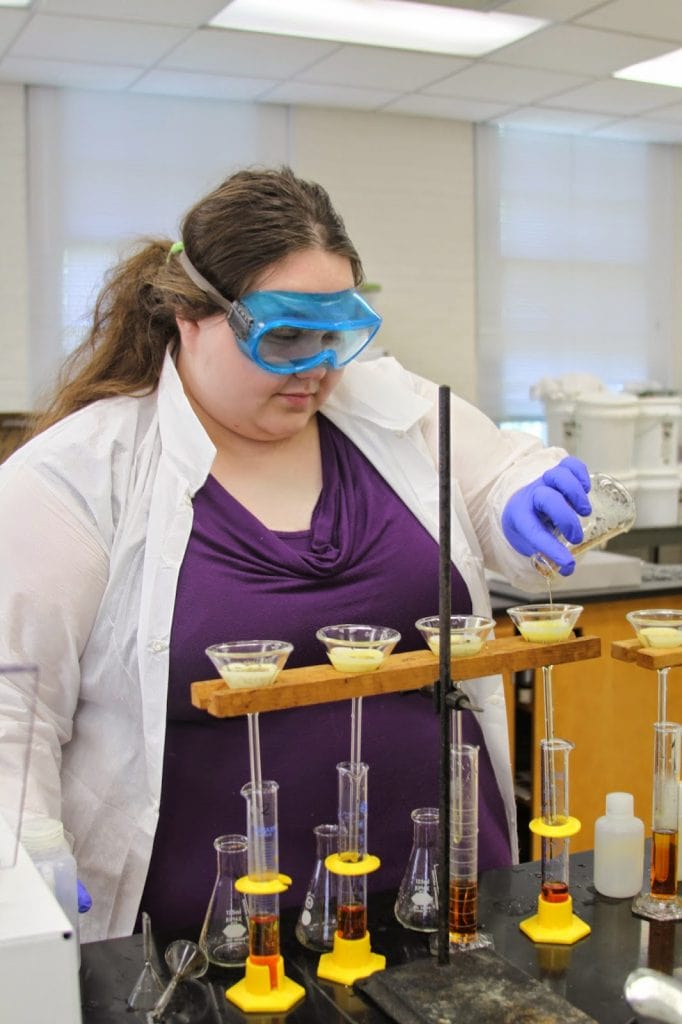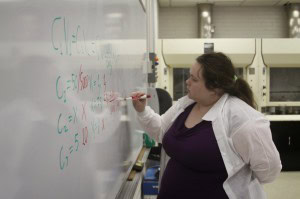Student explores more efficient soil remediation options
This summer, Hannah Edwards ’16 is searching for a better way to remove toxins from soil.
She started her summer research by contaminating several containers of soil with lead, an element that is known to cause developmental defects, especially in younger people. Then she started experimenting with plants to see which would best remove through a process called phytoremediation.
 “We’re trying to show that phytoremediation is an economically viable option for brownfields and vacant lots in general, but especially in Lynchburg,” she said.
“We’re trying to show that phytoremediation is an economically viable option for brownfields and vacant lots in general, but especially in Lynchburg,” she said.
Her quest for a better way to clean soil started during her first year at Randolph when John Abell, an economics professor, took some of his students to visit Lynchburg Grows, an urban farm and nonprofit in Lynchburg. The farm is operated in greenhouses on a former brownfield site that was remediated by removing a significant amount of soil and bringing new soil in.
“There has to be a better way,” Edwards thought.
There is—phytoremediation is an effective way to cleanse soil, and Randolph students and professors have experimented successfully with the process before. However, as Edwards learned more about phytoremediation, she saw a common problem: the plant that is best at removing lead is a type of corn that is not native to Virginia and requires a lot of water to grow.
This led Edwards to propose a project for the Summer Research Program. She wrote her own research proposal and asked professors to advise her on the project this summer. Sarah Sojka, an environmental studies and physics professor, and Kristin Bliss, a biology professor, agreed to help.
 Edwards faced some roadblocks in her research. For example, some of the plants she was growing for the tests died. However, she did get a strong population of ragweed for the tests.
Edwards faced some roadblocks in her research. For example, some of the plants she was growing for the tests died. However, she did get a strong population of ragweed for the tests.
She planted the ragweed, as well as corn, in several containers of soil that had various amounts of lead. This week, she harvested the grown plants, dried them, and began processing them with nitric acid to determine the lead content.
Finding a native species that can pull lead from soil but requires less water to grow would help make phytoremediation more feasible, and even economically beneficial. “If you can’t show people that a plan is going to make them money, it doesn’t matter how good it is for the environment, because they’re not going to see it as the best option for them right now,” she said. “You have to be able to give them hard figures.”
Edwards plans to incorporate her findings into a report on how phytoremediation can be used effectively in Lynchburg.
Tags: biology, chemistry, environmental science, research, summer research, summer research 2014
